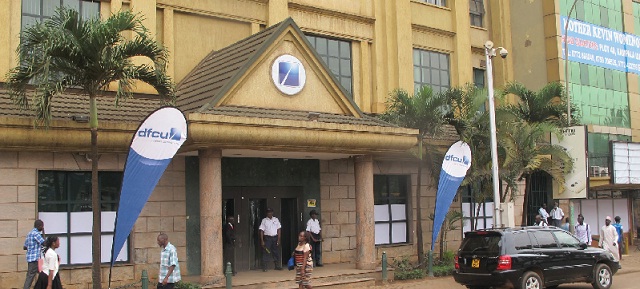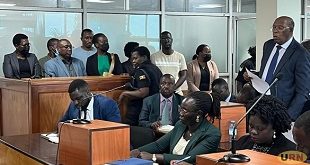
Matters were even more complicated when it emerged that Masembe was a business partner with the Attorney General William Byaruhanga, who before falling out with the tycoon over property, had also been one of his lawyers.
This is why when Masembe picked the side of the Central Bank in this fight, Sudhir’s camp were quick to raise the connection with Byaruhanga as part of the problem. Sudhir raised Masembe’s conflict of interest as one of the issues in his defense against the central bank.
Meanwhile, the parliamentary Committee on Statutory Authorities and State Enterprises (COSASE) is investigating the Bank’s operations. The committee launched an investigation into BoU’s expenditure on private law firms despite having a fully-fledged legal department.
COSASE members raised concerns that MMAKs, the firm representing BoU in Crane Bank case was paid more than Shs1.4 billion and was demanding more Shs15.8 billion in four consecutive financial years. Apart from this, the committee chairman Abdul Katuntu has called for investigations into the liquidation of banks by BoU—Greenland Bank, NBC, and Crane Bank.
Opposition stalwart, legislator Nathan Nandala Mafabi had earlier demanded a full parliamentary probe into BoU’s activities. He said most of the mess in Crane Bank gained immunity due to collusion, corruption, insider trading and fraud that went undetected or was covered up.
Sudhir, he said, cultivates social capital with those meant to supervise him, thus the collusion. It emerged that Bagyenda’s sister was the head of Crane Bank Rwanda.
“Parliament needs to carry out a comprehensive investigation into the role of Bank of Uganda in the mismanagement of Crane Bank, inquire into and assess the performance and liquidity of Bank of Uganda,” Mafabi noted.
It is only the Deputy Speaker Jacob Oulanyah who, in his ruling days later on Aug.01, saved BoU when he blocked the investigation on grounds that any investigation would offend the sub-judice rule.
“I received two letters from MMAKS Advocates (BoU’s lawyers) and the Governor challenging the proposed motion on grounds that any inquiry would bias ongoing court cases,” said Oulanyah.
Apparently, Mutebile’s letter to the Deputy Speaker’s office referred to three cases that are before High Court, all related to the collapse of Crane Bank.
Apart from the COSASE investigations, are the disturbing details that BoU Deputy Governor Kasekende, offered insider information to potential investors about the sale of Crane Bank while the central bank and Crane Bank’s majority shareholder, business mogul Sudhir Ruparelia, were still in negotiations.
The investor in question, Patrick Ho, allegedly paid Foreign Affairs Minister Sam Kutesa $500,000 as part of a plot to advance his Chinese firm’s business interests in Africa, specifically Uganda’s energy and financial sectors.
Documents from the American agency, Federal Bureau of Investigations (FBI), indicate that Kutesa’s wife, Edith Kutesa, was helping Ho in acquiring a Ugandan commercial bank. The bank has since been identified as Crane Bank, which BoU later sold to DFCU Bank.
The FBI documents show that Kasekende met with the Chinese investors and shared information with them about Crane Bank before BoU took it over. While the central bank has defended Kasekende’s actions as not illegal, the criticism has not abated.
Critics claim that Kasekende’s actions showed that BoU officials were hell-bent on selling to foreign investors Crane Bank even as they negotiated with the proprietor.
Mishandling economy
Other commentators, among them legislator and economist, Stephen Mukitale, who previously chaired the Parliamentary Committee on National Economy and now sits on the National Budget Committee, says BoU’s mishandling of the Crane Bank affair is a symptom of its mishandling of the larger economy.
“Crane Bank issues were badly handled,” says Mukitale, “That Bank was a symptom of a bad economy. It was not the problem. Part of the problem is that BoU has been implementing a (economy) contracting policy, which is not working.”
“The government has no policy on local banks,” Mukitale added, “They are closing local banks, which have been investing in Uganda. They closed Crane Bank, now local traders and suppliers are suffering. They are stuck.”
 The Independent Uganda: You get the Truth we Pay the Price
The Independent Uganda: You get the Truth we Pay the Price


